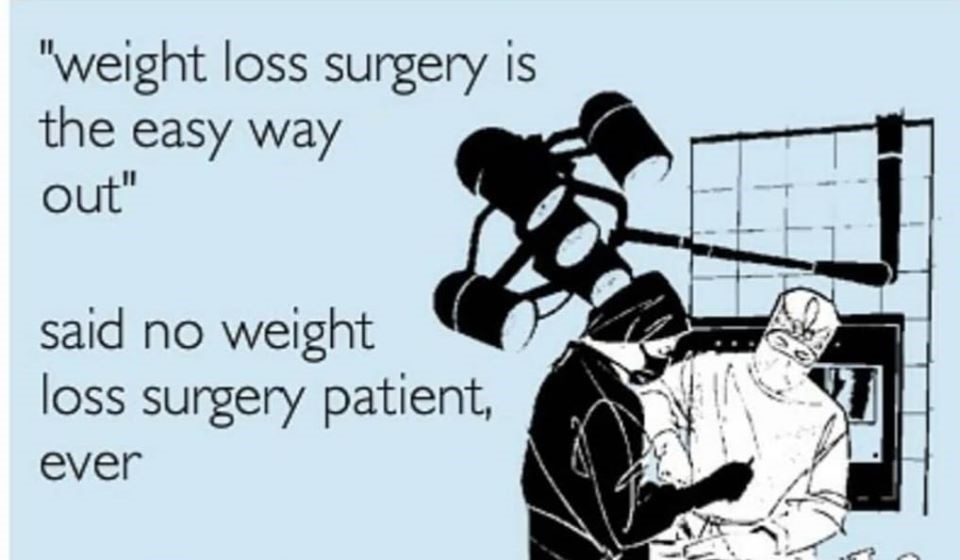Dr. Aparna Govil Bhasker; MS
Bariatric & Laparoscopic Surgeon
Unlike common belief, weight loss surgery or bariatric surgery is not a short cut and neither is it an easy way out. Patients who opt for weight loss surgery, face a lot of stigma and bias for going through this route. Questions are raised about their will-power and many times it is labelled as an act of vanity.
However, only people who suffer from clinically severe obesity understand how difficult it is to try and lose significant amount of weight. Added to this are the various co-morbidities associated with obesity such as type 2 diabetes, heart disease, breathing issues, high blood pressure, high cholesterol, PCOD, joint related issues, psycho-social problems and the list goes on and on.
Bariatric surgery is presently the only proven effective method for significant weight loss in patients suffering from severe obesity. Let us talk about the highs first:
Highs of bariatric surgery
The biggest high of bariatric surgery is the weight loss. It is an amazing feeling to get on to the weighing scale and see that every time the weight is lesser. Weight loss continues for about 12 to 18 months and usually patient lose about 50 to 70% of their excess weight.
Along with this, there is a significant improvement is associated diseases like type 2 diabetes, heart disease, breathing issues, high blood pressure, high cholesterol, PCOD, joint related issues etc. The number of daily medications being taken for associated co-morbidities also reduces over time. Patients feel more energetic and fit as they lose weight. Their mobility also increases as does their independence. They feel less reliant on other people.
One of the biggest highs that I have experienced in most of my patients is a renewed feeling of positivity. As the weight loss struggle fades, patients feel more confident and positive and it starts reflecting in their daily life and actions. They do better at home as well as at work. They become more self-reliant and get a new life.
Lows of bariatric surgery
While bariatric surgery has many positive outcomes, it also demands a lifelong commitment from the bariatric team as well as the patient. It is a partnership and the better it works, the better are the outcomes.
One of the main issues after bariatric surgery is the lifestyle modification that is needed. There is a big dietary change and a lot of counselling and help is needed from the bariatric team. Ofcourse, the advice also needs to be followed by the patient. In the beginning there can be choking sensation and difficulty in swallowing. If the food bolus is swallowed without chewing well, or taken in too fast, it can cause vomiting. There can be food intolerances and some patients can tend to feel awkward socially. There can also be some degree of pain in abdomen if dietary instructions are not followed properly. Most of these issues can be resolved with your doctor’s advice and they also tend to settle down over time.
Hair fall is another issue that worries a of patients. The good news is that usually it is temporary and if there are no associated nutritional deficiencies, hair grows back as soon as the weight loss stabilizes.
Nutritional deficiencies can occur after any bariatric procedure hence, it is important to be diligent with follow up after surgery. Nutritional supplements are a must after all bariatric operations. Your bariatric team will guide you about the protocols but a good compliance to supplementation leads to lesser nutritional deficiencies.
Surgical complications after bariatric surgery are seen in about 1% of cases and the complication rate is similar to other surgeries like gall bladder surgery or a knee replacement surgery. Ofcourse, risk assessment and necessary fitness and work up must be done prior to surgery.
Weight regain is one of the biggest lows of bariatric surgery. Unfortunately, obesity is a chronic progressive disease and although bariatric surgery helps to reduce weight significantly, weight does tend to increase over the years. Hence it is very important to be diligent with diet and exercise after surgery. This needs to be a lifelong, regular affair. Patients who embrace lifestyle modification tend to maintain their weight much longer. Those who don’t, tend to regain varying degree of weight over the years.
All said and done, bariatric surgery is not a one-time event or a solution. It is a part of a lifelong process that involves both the patient and the bariatric team and a high level of commitment are needed from both. Highs and lows are a part of this process. As a team it is our endeavour to maximize the highs and reduce the lows as much as possible. Cheers!
About Dr. Aparna Govil Bhasker
Dr. Aparna Govil Bhasker is an accomplished and renowned Bariatric Surgeon in Mumbai and Laparoscopic Surgeon.
Read more about Dr. Aparna Govil Bhasker- https://www.bestbariatricsurgeon.org/dr-aparna-govil-bhasker/
Please write in to info@bestbariatricsurgeon.org or draparnagovil@gmail.com & Call/Text/WhatsApp: +919819566618 or +919930922761
Dr. Aparna’s website is- https://www.bestbariatricsurgeon.org
You can read her lovely blogs on- http://www.aparnagovilbhasker.com
Dr. Aparna Govil Bhasker is a visiting consultant at the following hospitals:
- Gleneagles Global Hospital, Parel, Mumbai
- Surya Hospital, Santacruz West, Mumbai
- Hinduja Healthcare Surgical, Khar West, Mumbai
- Apollo Hospital, CBD Belapur, Navi Mumbai
- Suchak Hospital, Malad, Mumbai
- Namaha Hospital Kandivali, Mumbai
- Currae Specialty Hospital, Thane
- MGM Hospital, Vashi, Navi Mumbai
- Apollo Spectra Hospital, Tardeo and Chembur, Mumbai
- Saifee Hospital, Mumbai
Social Media:
- Facebook- https://www.facebook.com/draparnagovilbhasker/
- Linked in- https://www.linkedin.com/in/dr-aparna-govil-bhasker-82836b34/
- Twitter- https://twitter.com/aparnabhasker
- Instagram- https://www.instagram.com/draparnagovilbhasker/?hl=en
- You tube- https://www.youtube.com/user/aparnagovil/videos?view_as=subscriber





